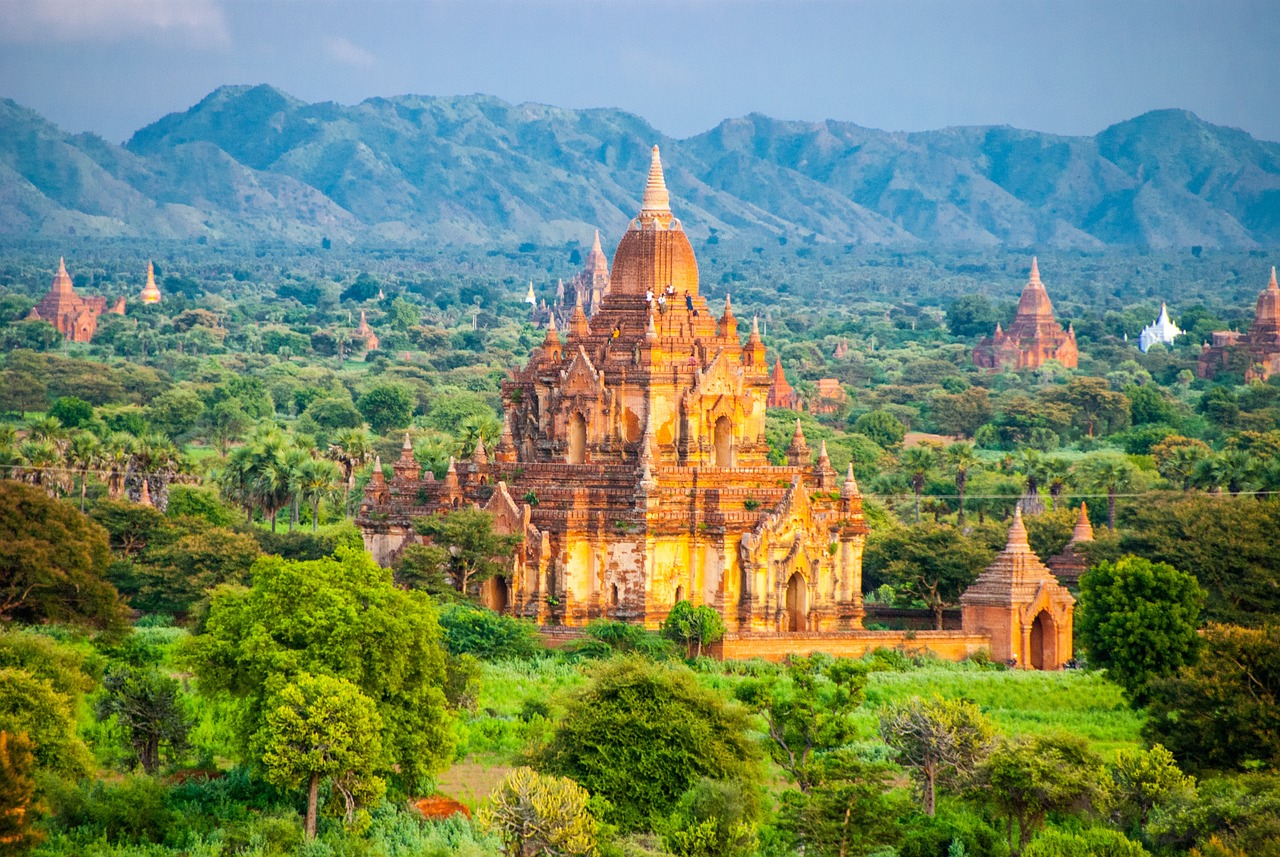Introduction
Myanmar, formerly known as Burma, is a country located in Southeast Asia. It is bordered by Bangladesh, India, China, Laos, and Thailand. Myanmar is known for its rich history, diverse culture, and stunning landscapes. In recent years, it has become an attractive destination for digital nomads and expats seeking new experiences and opportunities. This article will provide a comprehensive guide to Myanmar for digital nomads and expats, covering various aspects such as climate, cost of living, visas, transportation, accommodation, food, and more.
Myanmar For Digital Nomads
Myanmar offers a unique experience for digital nomads. With its blend of traditional and modern culture, stunning natural beauty, and affordable cost of living, it has become an emerging destination for remote workers. The country provides a peaceful environment, making it ideal for focused work and exploration during downtime. Myanmar’s growing infrastructure and improving internet connectivity also make it possible to work remotely from various locations across the country.
- Nomad-friendly coworking spaces: Yangon, the largest city in Myanmar, offers a range of coworking spaces equipped with high-speed internet, comfortable workstations, and networking opportunities.
- Digital nomad communities: Yangon and Mandalay have vibrant digital nomad communities where individuals can connect, collaborate, and share experiences.
- Unique cultural experiences: Myanmar’s rich history and cultural heritage provide digital nomads with plenty of opportunities to immerse themselves in local traditions, festivals, and rituals.
- Natural beauty: From the iconic temples of Bagan to the serene Inle Lake, Myanmar offers breathtaking landscapes that serve as a perfect backdrop for creativity and inspiration.
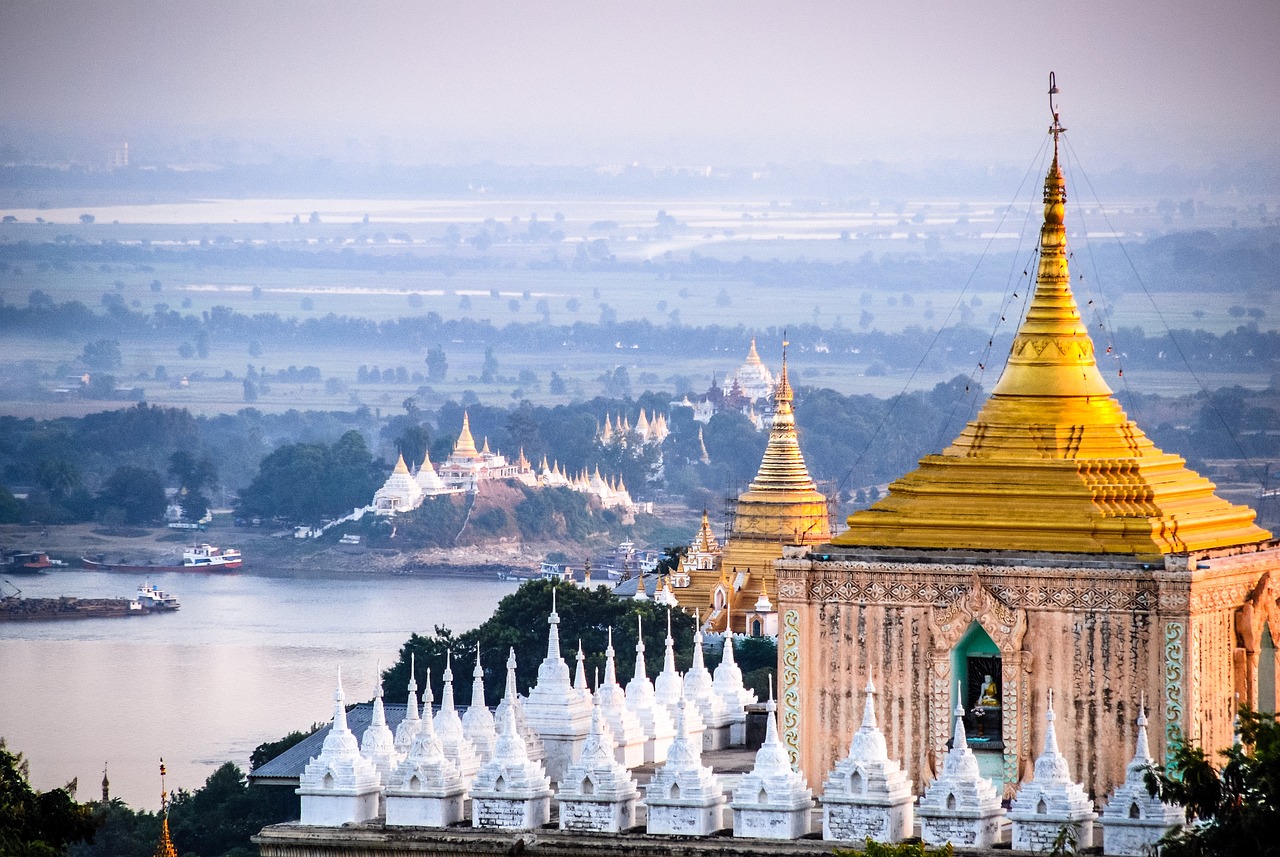
Myanmar Climate
Myanmar has a tropical monsoon climate, characterized by three distinct seasons: the hot season, the rainy season, and the cool season.
- Hot season (March to May): During this period, temperatures can reach up to 40°C (104°F) in some parts of Myanmar. It is advisable to stay hydrated and seek shade during the hottest times of the day.
- Rainy season (June to October): Myanmar experiences heavy rainfall during this season, especially in coastal regions and mountainous areas. It is recommended to carry an umbrella or raincoat and be prepared for occasional flooding in some areas.
- Cool season (November to February): This is the most pleasant time to visit Myanmar, with milder temperatures and lower humidity. It is the peak tourist season, so expect larger crowds and higher prices.

Myanmar Expat Communities
Myanmar has a growing expat community, particularly in cities like Yangon and Mandalay. These communities offer support, networking opportunities, and a sense of belonging for expats living and working in Myanmar.
- Yangon: The largest city in Myanmar, Yangon, has a vibrant expat community consisting of professionals from various industries. Expats can find social groups, events, and clubs catering to their interests.
- Mandalay: Mandalay, the cultural capital of Myanmar, also has a small but active expat community. Expats can connect with like-minded individuals through social media groups and expat-oriented events.
- Online communities: There are online platforms and forums where expats in Myanmar can connect, exchange information, and seek advice. These platforms provide a valuable resource for navigating life in Myanmar.
Living As An Expat In Myanmar
Living as an expat in Myanmar offers a unique experience but also comes with certain challenges. Here are some key aspects to consider:
- Cultural adaptation: Myanmar has a distinct culture, influenced by Buddhism and traditional practices. Expats should be respectful of local customs and traditions while adapting to the local way of life.
- Language: The official language of Myanmar is Burmese. While English is spoken in tourist areas and major cities, learning some basic Burmese phrases can help enhance the expat experience and facilitate interactions with locals.
- Healthcare: Myanmar’s healthcare system is still developing, and the quality of medical facilities may vary. Expats are advised to have comprehensive health insurance and access to emergency medical services.
- Security: Myanmar is generally a safe country, but it is always advisable to take common sense precautions, such as avoiding isolated areas at night and being cautious of pickpockets in crowded places.
Myanmar Cost Of Living
Myanmar offers a relatively affordable cost of living compared to many other countries in Southeast Asia. However, prices can vary depending on the location and lifestyle choices. Here is a breakdown of some common expenses:
- Accommodation: Rent for a one-bedroom apartment in Yangon can range from $300 to $800 per month, depending on the location and amenities. In other cities, prices can be lower.
- Food: Eating out at local restaurants can be very affordable, with meals costing around $2 to $5. Western-style restaurants and imported goods tend to be more expensive.
- Transportation: Public transportation in Myanmar is relatively inexpensive, with bus fares starting at $0.20. Taxis and ride-hailing services like Grab are also available in major cities.
- Utilities: Monthly utility bills, including electricity, water, and internet, can total around $50 to $100, depending on usage and location.
Myanmar Image 3:
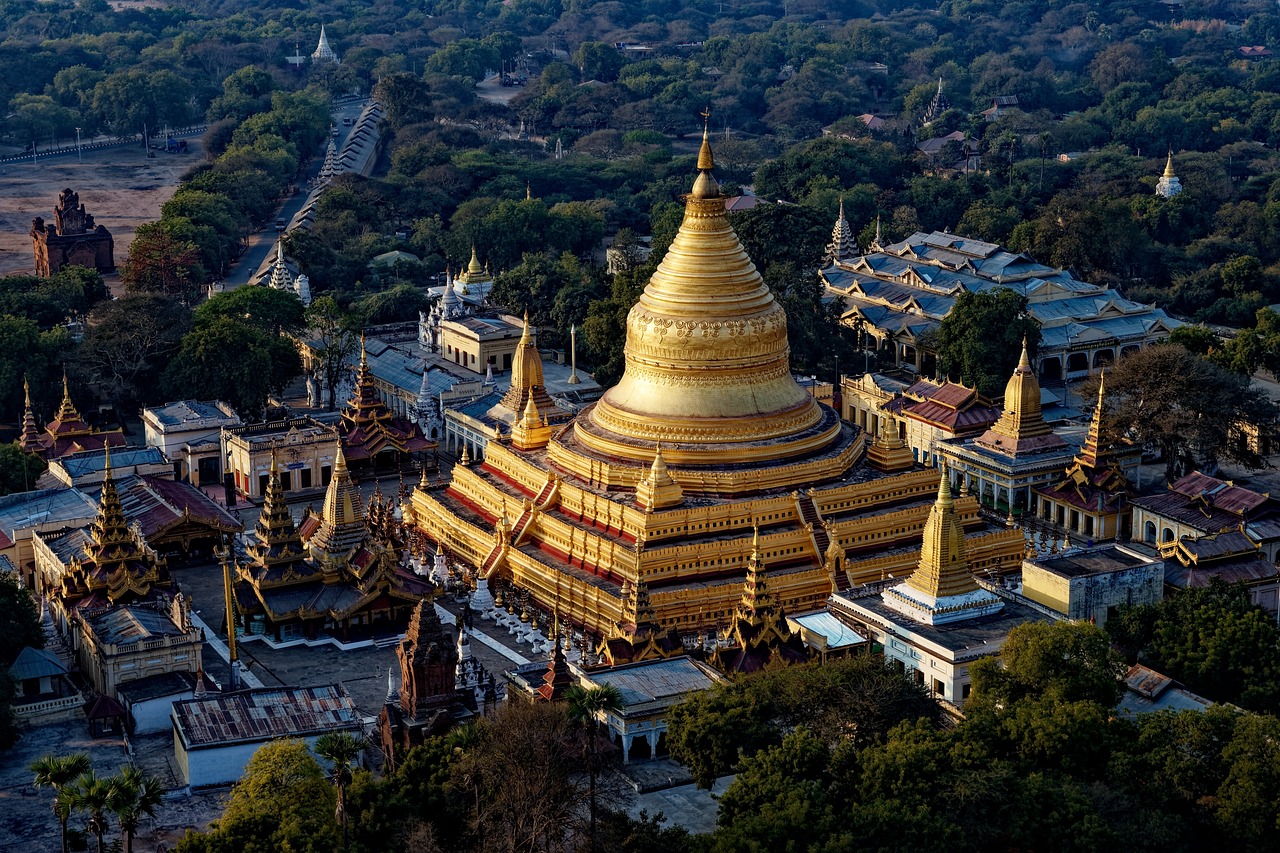
Myanmar Visas For Digital Nomads
Myanmar offers several visa options for digital nomads and long-term visitors. It is important to research and understand the visa requirements before traveling to Myanmar. Here are some common visa options:
- Tourist visa: Most visitors to Myanmar can obtain a tourist visa on arrival or apply for an e-visa in advance. Tourist visas typically allow stays of up to 28 days or 70 days, depending on the type of visa.
- Business visa: For those planning to work or conduct business activities in Myanmar, a business visa is required. It allows for longer stays and multiple entries into the country.
- Education visa: Digital nomads participating in educational programs or language courses in Myanmar can apply for an education visa, which allows for an extended stay.
Myanmar Transportation
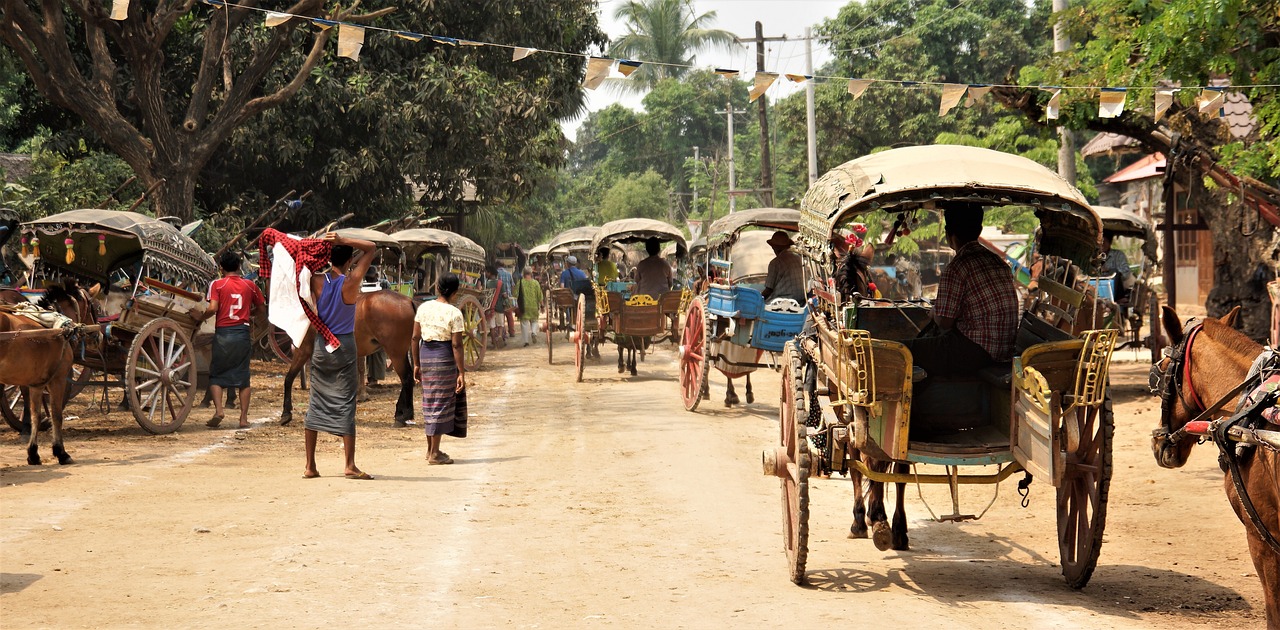
Getting around Myanmar is relatively easy, thanks to various transportation options available throughout the country.
- Taxis: Taxis are widely available in major cities like Yangon and Mandalay. It is advisable to use reputable taxi services or ride-hailing apps to ensure safety and fair pricing.
- Buses: Buses are the most common mode of public transportation in Myanmar. They connect cities and towns across the country, offering affordable fares.
- Trains: Myanmar has a railway network that connects major cities and towns. Train travel can be an adventurous way to explore the countryside, but it may not always be the fastest option.
- Domestic flights: Domestic flights are available for traveling long distances within Myanmar. Airlines such as Myanmar National Airlines and Air KBZ operate flights between major cities.
Myanmar Airports
Myanmar has several international and domestic airports, making it convenient for travelers and expats to access different parts of the country.
- Yangon International Airport: Located in Yangon, the largest city in Myanmar, this airport serves as the main gateway for international travelers.
- Mandalay International Airport: Situated in Mandalay, this airport offers international and domestic flights, providing easy access to the northern region of Myanmar.
- Bagan Nyaung U Airport: Located near the historic city of Bagan, this airport serves as a popular entry point for tourists visiting the ancient temples and pagodas.
- Heho Airport: Situated near Inle Lake, Heho Airport connects travelers to one of Myanmar’s most popular tourist destinations.
Facts About Myanmar
Here are some interesting facts about Myanmar:
- Buddhist heritage: Myanmar is home to thousands of Buddhist temples, including the famous Shwedagon Pagoda in Yangon.
- Longest teak bridge: The U Bein Bridge in Mandalay is the world’s longest teak bridge, stretching over 1.2 kilometers.
- Thanaka: Thanaka is a traditional cosmetic paste made from ground tree bark. It is commonly applied to the face by both men and women in Myanmar.
- Traditional dress: The traditional attire for men is called a longyi, which is a wraparound skirt, while women wear a longyi paired with a blouse known as a htamein.
Fun Things To Do In Myanmar
Myanmar offers a wide range of activities and attractions for digital nomads and expats. Here are some fun things to do in Myanmar:
- Explore Bagan: Visit the ancient city of Bagan and witness the breathtaking sunrise or sunset over the thousands of temples and pagodas.
- Cruise Inle Lake: Take a boat tour of Inle Lake, known for its floating gardens, stilt houses, and traditional fishing techniques.
- Trek in Hsipaw: Embark on a trekking adventure in Hsipaw, a scenic town in northern Myanmar, known for its beautiful landscapes and ethnic hill tribes.
- Visit Yangon’s markets: Explore the vibrant markets of Yangon, such as Bogyoke Aung San Market, where you can find a variety of local handicrafts, gems, and textiles.
Popular Myanmar Tourist Attractions
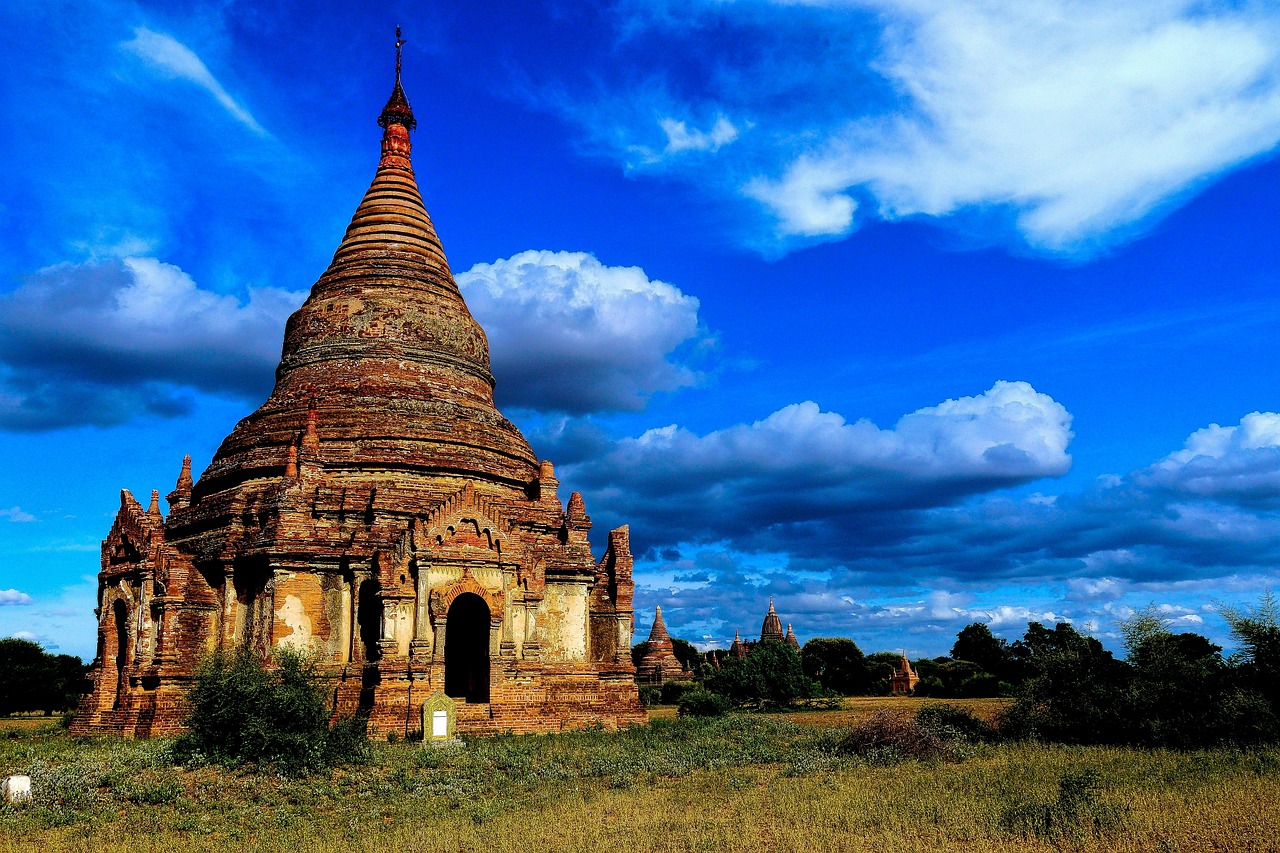
Myanmar is home to numerous tourist attractions that showcase its rich cultural heritage and natural beauty. Here are some popular destinations:
- Shwedagon Pagoda: Located in Yangon, the Shwedagon Pagoda is one of the most sacred Buddhist sites in Myanmar and draws visitors from around the world.
- Golden Rock: The Golden Rock, also known as Kyaiktiyo Pagoda, is a gravity-defying pagoda perched on the edge of a cliff in Mon State.
- Mandalay Royal Palace: Explore the Mandalay Royal Palace, which served as the primary residence of the last Burmese monarchy.
- Inle Lake: Visit Inle Lake, known for its floating gardens, unique leg-rowing fishermen, and traditional stilt houses.
Myanmar Cities
Myanmar is home to several vibrant cities, each with its own unique charm and attractions. Here are some notable cities to explore:
- Yangon: The largest city and former capital of Myanmar, Yangon offers a mix of colonial architecture, bustling markets, and the iconic Shwedagon Pagoda.
- Mandalay: Known as the cultural capital of Myanmar, Mandalay is famous for its ancient temples, traditional crafts, and the picturesque Mandalay Hill.
- Bagan: Bagan is an ancient city dotted with over 2,000 well-preserved temples and pagodas, offering a glimpse into Myanmar’s rich history.
- Inle Lake: Located in the Shan State, Inle Lake is a tranquil destination known for its floating gardens, traditional villages, and serene atmosphere.
Myanmar Internet Speed and Accessibility
Internet connectivity in Myanmar has improved significantly in recent years, although it may still vary in different regions. Here are some key points about internet speed and accessibility in Myanmar:
- Internet speed: In major cities like Yangon and Mandalay, internet speeds are relatively fast, with average download speeds ranging from 10 to 50 Mbps. However, in more remote areas, speeds may be slower.
- Mobile data: Mobile data is widely available in Myanmar, and prepaid SIM cards can be purchased at affordable prices. The major telecom providers are MPT, Ooredoo, and Telenor.
- Internet cafes: Internet cafes can be found in urban areas, providing an alternative for those without access to reliable internet at their accommodations.
Myanmar Accommodation
Myanmar offers a variety of accommodation options to suit different budgets and preferences. Here are some popular choices:
- Hotels: Myanmar has a range of hotels, from budget guesthouses to luxury resorts. Popular hotel chains like Accor, Hilton, and Shangri-La have a presence in major cities.
- Vacation rentals: Vacation rentals, such as holiday homes and villas, can be found in tourist destinations like Bagan and Inle Lake. Platforms like Airbnb offer a wide selection of options.
- Apartment rentals: Apartments and serviced apartments are available for long-term stays in cities like Yangon and Mandalay. Websites like Myanmar Housing provide listings for rental properties.
Popular Myanmar Hotels
Myanmar is home to various hotels offering comfortable accommodations and warm hospitality. Here are some popular hotels in different cities:
- Belmond Governor’s Residence (Yangon): A luxury colonial-style hotel set in a tranquil garden, offering a blend of traditional elegance and modern amenities.
- The Strand Yangon (Yangon): An iconic heritage hotel known for its grandeur and timeless charm, located in the heart of Yangon.
- Aureum Palace Hotel & Resort (Bagan): A luxury resort nestled amidst the temple ruins of Bagan, providing panoramic views of the ancient city.
- Novotel Mandalay Mingalar (Mandalay): A contemporary hotel conveniently located near Mandalay’s major attractions, featuring comfortable rooms and a rooftop pool.
Popular Myanmar Vacation Rentals
For those seeking a more independent and immersive experience, vacation rentals can be a great option. Here are some popular vacation rentals in Myanmar:
- Bagan Thande Hotel (Bagan): Located on the banks of the Ayeyarwady River, this hotel offers traditional-style bungalows with modern amenities.
- Hupin Hotel (Inle Lake): Situated on the shores of Inle Lake, this hotel provides comfortable rooms and stunning lake views.
- Golden Dream Hotel (Mandalay): A boutique hotel in the heart of Mandalay, offering stylish rooms and a rooftop terrace with panoramic city views.
- Yangon Excelsior Hotel (Yangon): A boutique hotel housed in a restored colonial building, featuring elegant rooms and a rooftop bar.
Popular Myanmar Apartment Rentals
For digital nomads and long-term visitors, renting an apartment can provide a home away from home. Here are some popular apartment rentals in Myanmar:
- Myanmar Rich Hotel (Yangon): This hotel offers serviced apartments with modern amenities, including a kitchenette and access to a fitness center.
- Emerald Palace Hotel (Mandalay): A hotel that also offers long-term apartment rentals with spacious living areas and a swimming pool.
- City Star Hotel (Naypyidaw): Located in the capital city, this hotel provides fully furnished apartments with a range of amenities.
- The Link 78 Mandalay Boutique Hotel (Mandalay): A boutique hotel with studio apartments featuring contemporary design and kitchen facilities.
Myanmar Food & Drink
Myanmar’s cuisine is diverse and influenced by its neighboring countries, particularly India, China, and Thailand. Here are some popular dishes and beverages to try:
- Mohinga: Considered Myanmar’s national dish, Mohinga is a flavorful rice noodle soup with fish broth, served with crispy fritters and fresh herbs.
- Tea leaf salad (Laphet Thoke): A unique and traditional dish made with fermented tea leaves, mixed with crunchy peanuts, fried garlic, and sesame seeds.
- Shan noodles: Originating from the Shan State, these noodles are typically served with a rich and savory sauce, topped with crispy fried onions and chili oil.
- Burmese curry: Burmese curries are rich and aromatic, often made with pork, chicken, or fish, and served with rice or flatbread.
- Myanmar beer: Myanmar Beer is the most popular local beer, known for its crisp and refreshing taste. Other local beverages include palm wine and traditional rice wine.
Myanmar Grocery Stores
Finding groceries and daily essentials in Myanmar is relatively easy, especially in urban areas. Here are some popular grocery store chains:
- City Mart Supermarket: City Mart is a leading supermarket chain with multiple locations in Yangon and Mandalay, offering a wide range of local and imported products.
- Olympic Supermarket: Olympic Supermarket is a well-known grocery store chain with branches in major cities, providing a diverse selection of food and household items.
- Orange Supermarket: Orange Supermarket is a local chain that offers affordable groceries and essentials, with branches in various cities across Myanmar.
Conclusion
Myanmar is a captivating country that offers a unique experience for digital nomads and expats. With its rich history, diverse culture, and stunning landscapes, it has become an increasingly popular destination. From exploring ancient temples in Bagan to immersing in the tranquility of Inle Lake, Myanmar offers a wealth of opportunities for work, adventure, and cultural exploration. Embracing the local customs and enjoying the warm hospitality of the people will make the journey even more memorable. References: – Lonely Planet Myanmar: www.lonelyplanet.com/myanmar – Ministry of Hotels and Tourism Myanmar: www.hotel-myanmar.net – Myanmar Housing: www.myanmar-housing.com – Myanmar Tourism: www.tourism.gov.mm

